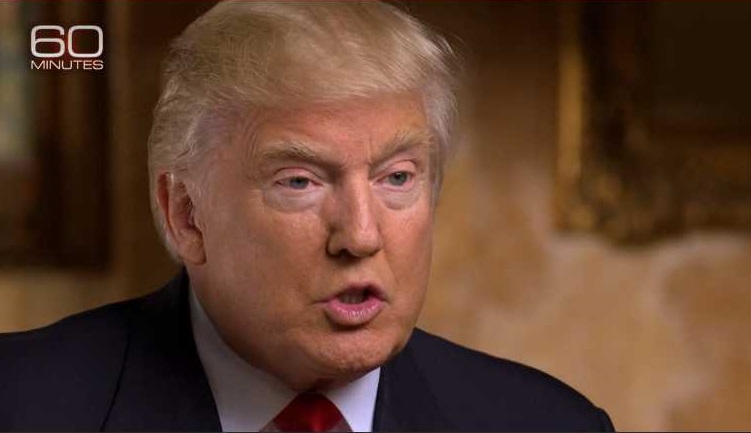 President-elect Donald Trump told CBS’ “60 Minutes” this past week that he believes the issue of same-sex “marriage” has been “settled” by the U.S. Supreme Court and that he is “fine with that.”
President-elect Donald Trump told CBS’ “60 Minutes” this past week that he believes the issue of same-sex “marriage” has been “settled” by the U.S. Supreme Court and that he is “fine with that.”
The interview, which aired Sunday night, included a variety of topics, such as immigration, abortion and the protests following the election.
“One of the groups that’s expressing fear are (sic) the LGBTQ group,” interviewer Leslie Stahl stated, referring to concerns from homosexual groups that Trump might null and void their nuptials.
“And yet I mentioned them at the Republican National Convention,” Trump interjected.
“You did,” Stahl agreed.
“Everybody said, ‘That was so great.’ I have been, you know, I’ve been a supporter,” Trump said.
Stahl then asked Trump about his personal views on same-sex “marriage,” but he declined to divulge.
“I guess the issue for them is marriage equality. Do you support marriage equality?” she inquired.
“It’s irrelevant because it was already settled,” Trump replied. “It’s law. It was settled in the Supreme Court. I mean it’s done.”
“So even if you appoint a judge that—,” Stahl interjected, alluding to the possibility of overturning Obergefell.
“It’s done,” Trump stated. “These cases have gone to the Supreme Court. They’ve been settled. And I’m fine with that.”
As previously reported, last month, Trump held up a rainbow “LGBT’s for Trump” flag at the start of a campaign rally in Colorado after being handed the banner by a homosexual supporter. His campaign website also made available for purchase “LGBTQ for Trump” t-shirts and pins.
Trump had additionally declared at a fundraiser in June that he is the best candidate for the “gay community,” and in February, he replied in the affirmative when asked by a lesbian reporter if the nation can expect “more forward motion” on homosexual issues if elected president.
In regard to abortion, Trump advised that he still plans on appointing pro-life justices, but said it was too soon to say what the result might be.
“[I]f it (Roe v. Wade) ever were overturned, it would go back to the states,” he said.
“Yeah, but then some women won’t be able to get an abortion?” Stahl asked.
“No, it’ll go back to the states,” Trump replied.
He said that if abortion then becomes illegal in one state, that “they’ll perhaps have to go to another state.”
“And that’s okay?” Stahl asked.
“Well, we’ll see what happens,” Trump stated. “It’s got a long way to go, just so you understand. That has a long, long way to go.”
Trump had outlined before the election that he intends on appointing a Supreme Court justice like the late Antonin Scalia.
“I will strike down Roe v. Wade, but I will also strike down a law that is the opposite of Roe v. Wade,” Scalia outlined in a 2002 Pew Forum. “You know, both sides in that debate want the Supreme Court to decide the matter for them. One [side] wants no state to be able to prohibit abortion and the other one wants every state to have to prohibit abortion, and they’re both wrong.”
“And indeed, there are anti-abortion people who think that the Constitution requires a state to prohibit abortion. They say that the equal protection clause requires that you treat a helpless human being that’s still in the womb the way you treat other human beings. I think that’s wrong,” Scalia further explained in a 2008 60 Minutes interview. “I think when the Constitution says that persons are entitled to equal protection of the laws, I think it clearly means walking-around persons.”
Become a Christian News Network Supporter...


